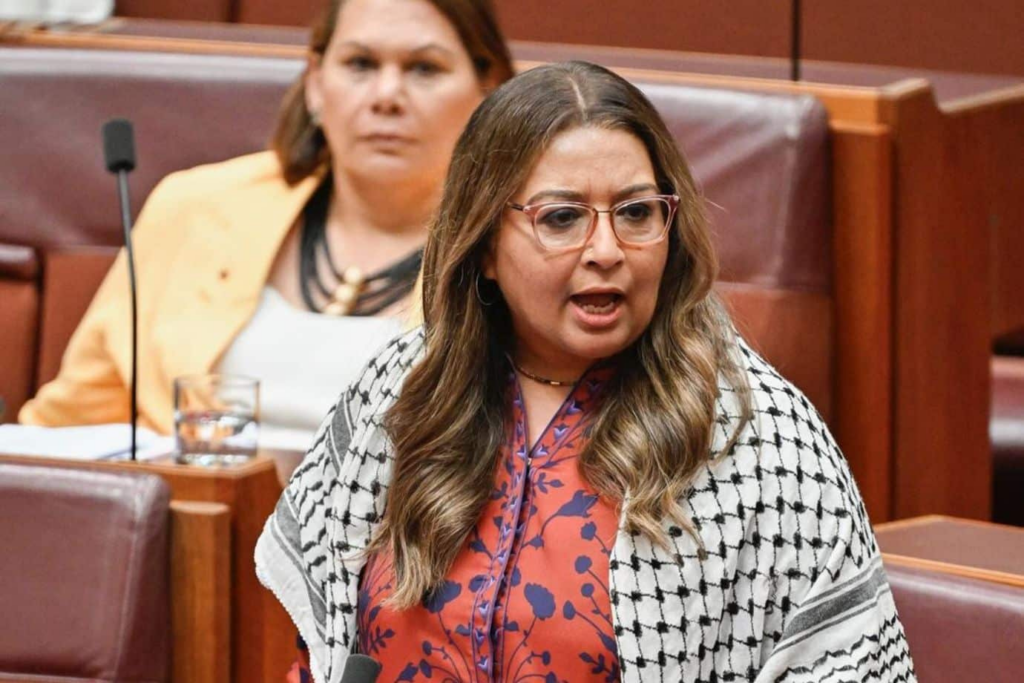Senator Mehreen Faruqi recently spoke out about the ongoing inequities in Parliament, saying, “It’s been three years since the Set the Standard report, two years since the parliamentary behaviour codes were developed, and 20 months since they were endorsed by Parliament, but it seems to make no difference to how women of colour are treated in here.” Her frustration is clear—and deeply justified.
This week Fatima Payman showed the bravery to speak out against racism which is something we know from our Australian experience comes with a high price – we often see people who speak out getting punished while the perpetrators are let off. At the same time, Senator Lidia Thorpe has been handed an extraordinary suspension.
Parliament, one of the country’s most powerful workplaces, was handed a detailed blueprint for change through the Set the Standard report. I was the Director of Legal on the report, and we outlined the steps needed to address bullying, harassment, and discrimination. Yet, as Faruqi points out, for women of colour, little has changed.
Culture change does indeed take time. But my question is: why aren’t we listening to voices like Senator Faruqi? Why aren’t we making workplaces safe for everyone?
Women of colour face unique challenges that often go unnoticed or unaddressed. It’s not just sexism or racism; it’s the combined weight of both. This double burden makes their experiences in workplaces—whether in Parliament or elsewhere—fundamentally different.
A recent report by Women of Colour Australia found that a staggering 2 in 3 women of colour have experienced discrimination in the workplace and that racism is the predominant type of discrimination experience.
They’re more likely to face microaggressions, exclusion, and outright hostility. But worse, when they speak up, their concerns are often written as “isolated incidents” or minimised to avoid “rocking the boat.” It’s tiring. And it’s made worse when workplaces create policies that sound good on paper but fail to deliver real change.
“In here [parliament], it is easy to fling around racism and racist commentary but when you dare call out racism and the double standards used in this place, you are shut down, you are silenced and you are gaslighted,” Faruqi says.
Why aren’t we doing better?
It’s not that we don’t know what the problems are. Countless reports and accounts have laid out that systemic racism and sexism are deeply entrenched in many workplaces. We also know what needs to happen—clear policies, accountability, and a culture shift.
Part of the problem is discomfort. Talking about racism, especially systemic racism, makes many people uncomfortable. It forces us to confront biases, privilege, and power dynamics that we’d often rather ignore. I’ve seen this directly in my previous workplaces, in my consulting work, and in my son’s school. In contrast, issues like sexual harassment—while still challenging—have seen more public awareness and action. Racism, particularly when it intersects with sexism, still feels too hard or too awkward for many to address head-on.
What needs to happen?
First, workplaces, including Parliament, need to move from words to action. It’s not enough to have policies if there’s no enforcement. Leaders need to take responsibility and ensure consequences for behaviours that make workplaces unsafe.
Second, we need to center the voices of people of colour in these conversations. They’re the ones most affected by these issues, and their experiences should guide the solutions. The government has accepted all the recommendations of the Set the Standard report but is implementation taking an intersectional approach where the experiences on marginalised groups are being addressed?
Thirdly, we need safe pathways for people to be able to report harmful behaviours such as racism and sexism. The majority of people who experience harassment and racism don’t speak out. This is why I’ve developed Australia’s first trauma-informed and culturally safe anonymous reporting and support platform SafeSpace@elevate.
Finally, we need a cultural shift. Workplaces have to stop treating equity as a nice-to-have. It’s not optional. We need to normalise conversations about racism and sexism, even when they’re uncomfortable.
Senator Mehreen Faruqi’s words aren’t just about Parliament—they’re a call to action for all workplaces. We’ve been handed the tools to make workplaces safe for everyone. Now, we just need the courage to use them. If we keep ignoring the voices of women of colour, we’re failing them—and failing ourselves. It’s time to stop talking about change and start making it happen.


